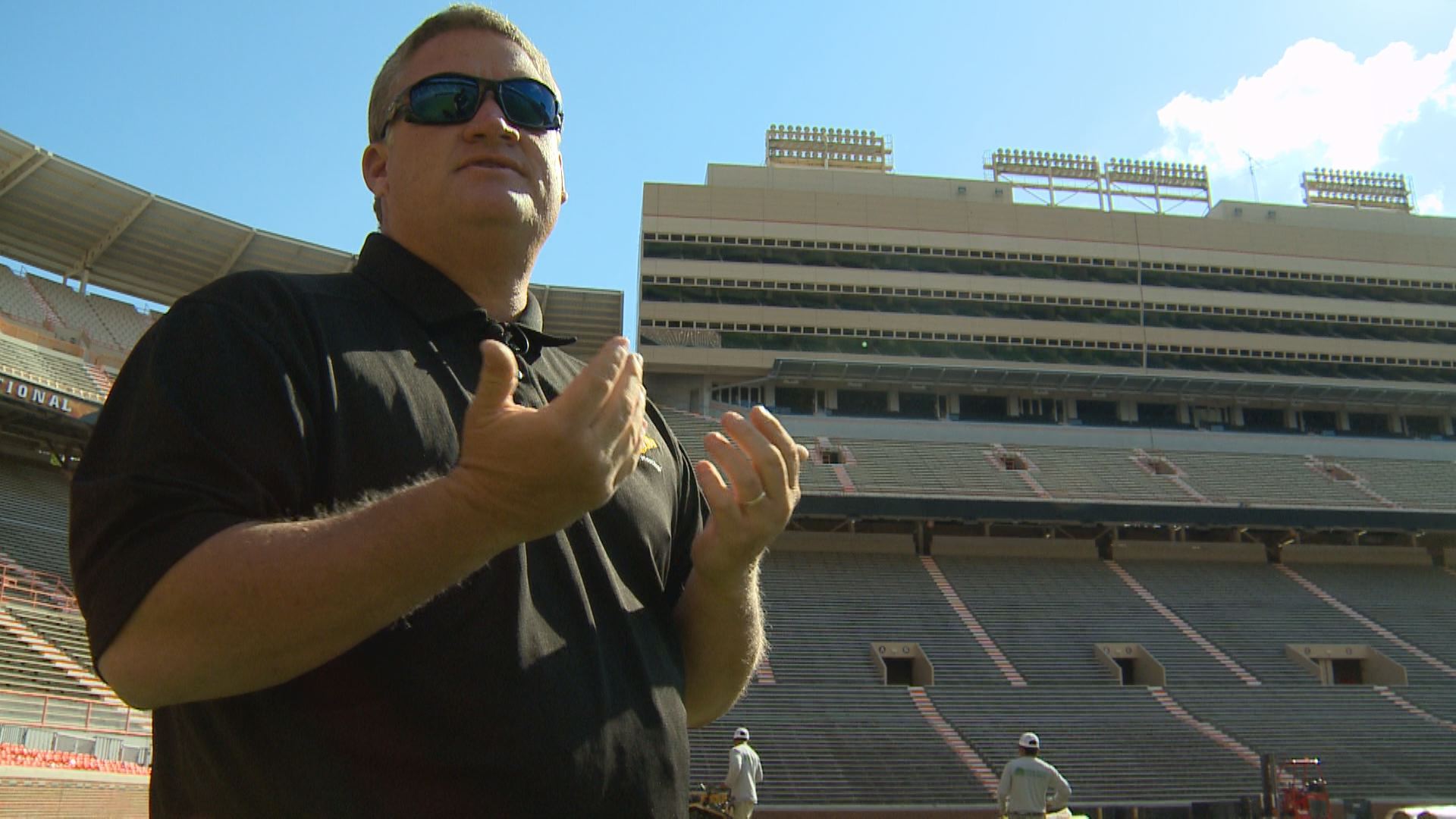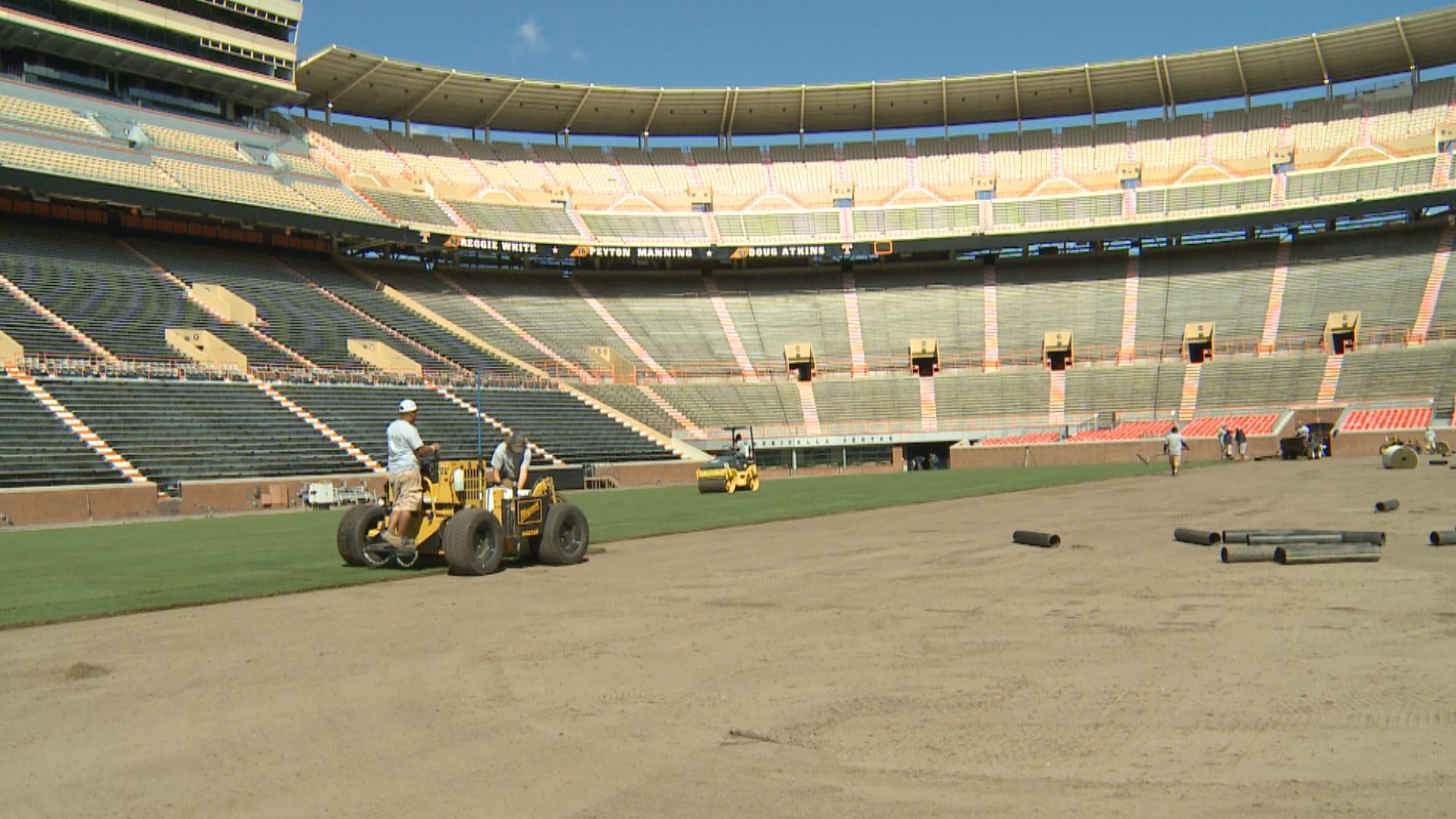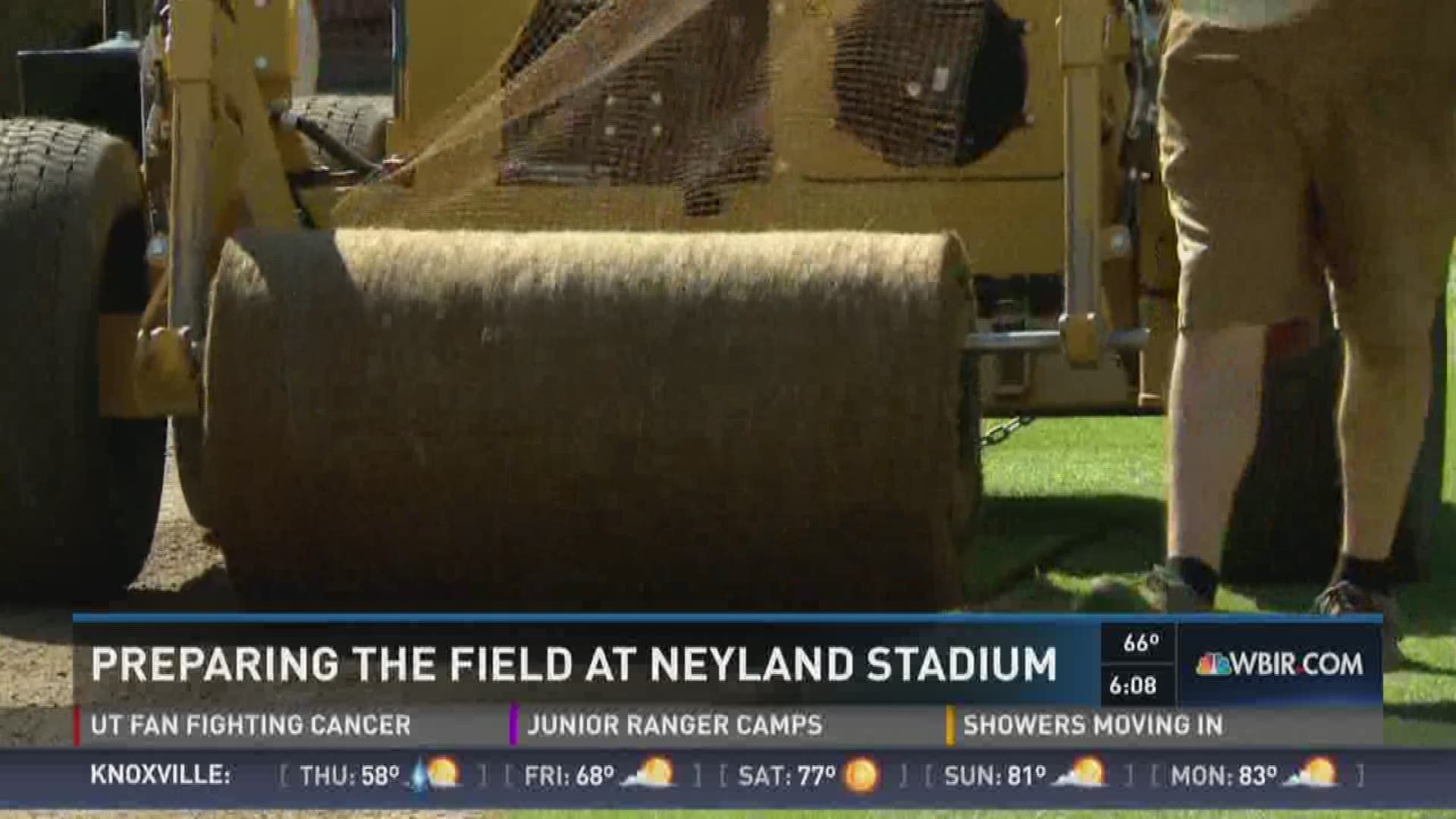Crews are almost done preparing the field at Neyland Stadium for football season.
According to UT director of sports surfaces Darren Seybold, they’ll finish laying the 30 truckloads of sod sometime Thursday afternoon.
The grass came from Charlotte, N.C.
“I mean this is some of the highest quality grass in the United States,” Seybold said.

Seybold said he’s learned from last year's slippage issues – fans and commentators alike criticized the quality of the Vols’ field, pointing to highlights of players sliding on loose turf.
Jan. 15, 2016: UT hires architecture firm to make Neyland Stadium upgrades
Seybold attributed the late-season issue to winter seed that’s laid down on top of the summer sod, combined with problematically wet weather. The new late-season grass grows better in the cold, he said.
He said crews have a plan this year to mix more sand in with the seed to make the grass surface less slippery.
“It’s like a coaching staff,” he said. “You look back, and say, ‘Hey, how can we get better?”
Tennessee is one of nine SEC teams that plays on a natural grass surface.
“Tennessee has the best field stadium in the country,” Seybold said. “I want it to the best too. We learned from last year, and we’ll make it better this year. That’s always the hope."

SEC football stadium map: Grass (green markers) vs. Turf (blue markers)
The Vols play seven home games at Neyland Stadium during the 2016 football season.
· Sept. 3 vs. Appalachian State
· Sept. 17 vs. Ohio
· Sept. 24 vs. Florida
· Oct. 15 vs. Alabama
· Nov. 5 vs. Tennessee Tech
· Nov. 12 vs. Kentucky
· Nov. 19 vs. Missouri
Neyland Stadium is the fifth largest football stadium in the U.S. with an official capacity of 102,455 fans.

